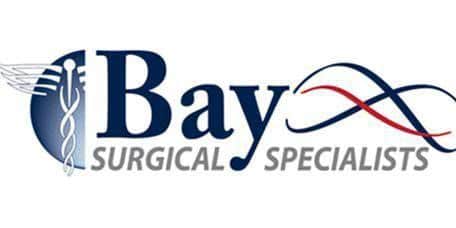Endocrine Surgery
The endocrine system is a complex collection of glands throughout the body. In the neck, you can find the pituitary gland, thyroid, and parathyroid glands, then the adrenal glands sit on the top of each kidney, the pancreas, and the female ovaries and male testicles, the system works together to produce hormones that regulate metabolism, growth, development, reproduction, sleep, tissue function, and emotional well-being. There are primary and secondary endocrine functions that help the organs and cells work together.
When your physician performs testing that may indicate an endocrine disruption, often exploratory surgery can help to confirm or deny the test results and be an important part of your care plan. At Bay Surgical Specialists, we routinely help patients who have underperforming or malfunctioning endocrine glands. We offer in-office neck ultrasounds in our St. Petersburg office. We also perform exploratory biopsies with state-of-the-art equipment, minimally-invasive laparoscopic procedures to reduce recovery downtime and minimize scarring, and traditional operations if a care plans require.
Resolving endocrine gland issues can correct many illnesses and rebalance how other organs or cells may be compensating for the endocrine malfunction. Prolonged failure in any of the endocrine glands can have lasting side effects or symptoms. It’s better to be proactive to prevent fatigue in other areas of the body.
Our Board-certified surgeons are experts at identifying glands abnormalities and can often surgically correct the glands or reduce the symptoms they may cause. Procedures we perform include, but are not limited to:
- Total Thyroidectomy
- Thyroid Lobectomy
- Laparoscopic Adrenalectomy
- Graves' Disease
- Minimally Invasive Parathyroidectomy
- Parathyroid
Total Thyroidectomy
Thyroid cancer and other damage to the thyroid may require a total thyroidectomy, or removal of the thyroid gland. During a thyroidectomy, the surgeon will do their best to maintain nearby critical structures, such as the parathyroid and voicebox. A total thyroidectomy also gives the surgeon time to explore for other areas that may be impacted.
Thyroid Lobectomy
The thyroid is the shape of a butterfly and sometimes only requires a thyroid lobectomy, the removal of a portion of the lobectomy. Lobectomies are often used to confirm a diagnosis, remove a nodule, or remove a damaged lobe. Our care plan for a thyroid lobectomy can usually be done laparoscopically, which is minimally invasive to aid in post-surgical recovery time and cosmetic healing.
Laparoscopic Adrenalectomy
When one or both of the adrenal glands become impaired or adrenal cancer is suspected, our surgeons can perform a laparoscopic adrenalectomy. Unlike traditional adrenal surgeries that involve a larger incision and longer recovery time, laparoscopic surgeries involve small incisions to allow for state-of-the-art equipment and a camera in a way that is minimally-invasive. This may significantly reduce post-operative pain and recovery time.
Graves’ Disease
Graves’ Disease is an autoimmune disorder that causes an overactive thyroid, which is called hyperthyroidism. Graves’ disease is the most common cause of hyperthyroidism in the United Sates. Blood tests and/or imaging tests can help confirm Graves’ disease. To treat the disorder, patients have three options, including thyroid surgery. A total thyroidectomy will remove the diseased thyroid. This is typically done as a minimally-invasive procedure to shorten recovery time and help patients reduce their hospital stay. Thyroid hormone levels will need to monitored and medicines required to correct hormone imbalances following the thyroidectomy.
Minimally-invasive Parathyroidectomy and Traditional Parathyroidectomy
The parathyroid is four glands located in the neck near the thyroid. The parathyroid produces hormones that regulate calcium ions, which impacts the bones, kidneys and intestines. Parathyroid disease can cause serious problems, such as osteoporosis, kidney disease, muscle weakness, heart disease, high blood pressure, and much more. There are many causes for parathyroid disease, including parathyroid cancer, and increases the risk of several diseases. Treating parathyroid disease and hypothyroidism may involve surgery. Blood test and imaging testing can help identify which of the four glands are malfunctioning. Our Board-certified surgeons can remove the overactive gland with minimally-invasive procedures or traditional surgery. We typically recommend for a minimally-invasive laparoscopic procedure to reduce time under general anesthesia, in recovery, and to improve cosmetic healing. Sometimes there are factors that require traditional surgery, such as large goiters or tumors, and the duration of the surgery and recovery may take longer.
If you suspect an endocrine disorder or are suffering from an endocrine disease, we are honored to join your care team to perform your exploratory procedure or corrective surgery. Contact our office for more information.

